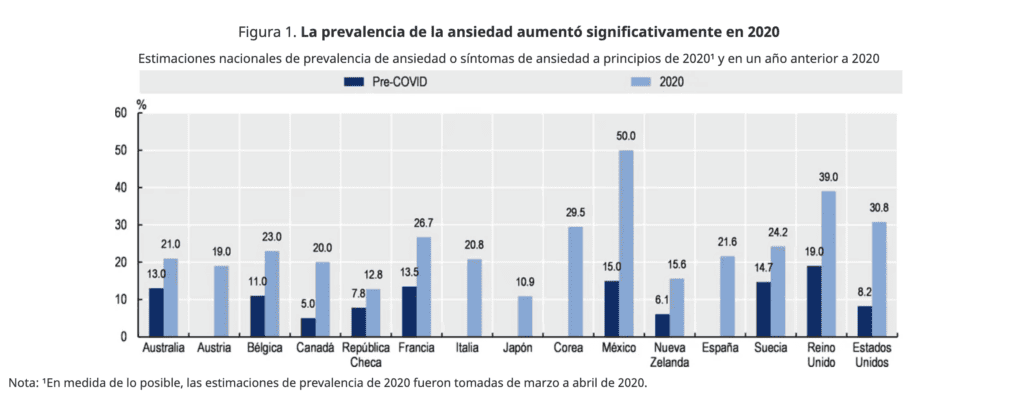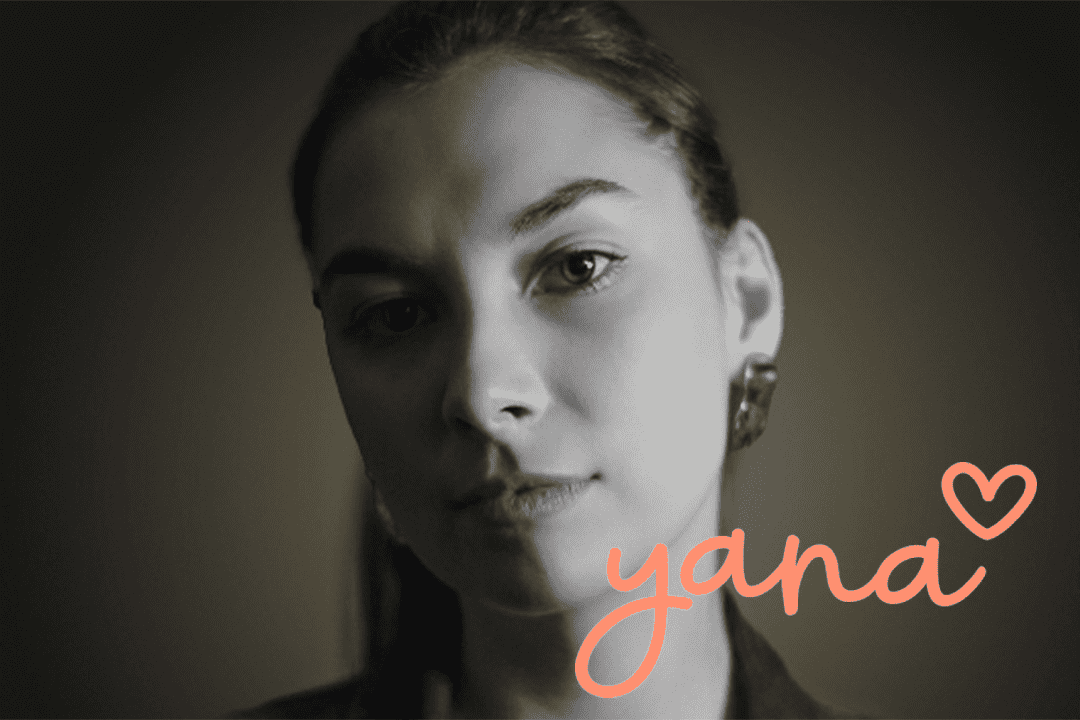Founded in 2016 by Andrea Campos, Yana is an application that offers a technological solution providing accessible mental health support and resources in Latin America.
Campos created a version of the chatbot to test it with a small group of people. After a successful pilot phase, she sought financing through crowdfunding to take the idea to the next level.
The first funding arrived from angel investors in early 2020, providing the necessary boost to expand Yana’s reach. The application was launched in March 2020, just as the global pandemic forced people into isolation.
During the early stages of the COVID-19 crisis, significant impacts on mental health became evident as populations in Latin America and the Caribbean (LAC). They worldwide faced unprecedented disruptions in their daily lives, studies, and work. Between March and April 2020, recorded levels of anxiety and depression in the general population increased in nearly all OECD countries, underscoring the critical need for solutions.

Enveloped in a dark labyrinth since childhood, Andrea battled daily with invisible monsters: formidable foes hidden in the shadows, twisting in the most intimate corners of her mind, gradually stealing hope and color from the outside world. The young entrepreneur navigated the dense mist of psychiatric treatments like a castaway in a relentless ocean for years.
She sought doctors, gurus, and pills, a lifeline that could rescue her from the unfathomable abyss of anxiety and depression. Yet, she often found herself caught in a vicious cycle, where every effort to heal seemed only to intensify her suffering.
After a pilgrimage that defied sanity and time, she finally stumbled upon a combination of cognitive-behavioral therapy and medications. Her life began to regain the colors that had once been stolen from her, and the monsters that dwelled in her mind dissolved in the light of a new day.
Inspired by her experience, Andrea created Yana as a personal project to help others facing similar challenges.
“I struggled a lot to find the kind of help I needed, specifically for 14 years. And then, when I came across the smartphone, remote assistance through this medium made a lot of sense to me. It coincided with me learning to program for about a year and a half. That’s when I thought, ‘How can I combine what I’m learning in therapy and what I’m learning in programming to create something that works for me to deal with my next episode?'” explains the entrepreneur exclusively to Contxto.
With Yana, you are not alone: from idea to reality
The name Yana, which stands for “You Are Not Alone” in English, reflects its essence. It’s not just a chatbot; “it’s a revolution in how people can access emotional and therapeutic support,” Andrea clarifies.
“Yana started as a solution for me. So, at first, the structure was quite simple. I began using a programming language called JavaScript, specifically with the React framework for the frontend. And for the backend, I was working with Node.js,” details the CEO and founder of the startup.
Today, the platform relies on artificial intelligence to provide meaningful conversations that address various mental and emotional challenges. With reactive users seeking immediate answers and proactive users aiming for continuous growth, Yana covers a full spectrum of needs.
Yana has achieved explosive growth since its official launch. To date, it has amassed more than seven million users. It has attracted over $1.8 million in investments, including an initial investment of $315,000 from Magma Partners, Hustle Fund, and 500 Startups, and a later round of $1.5 million led by the ALLVP fund in June of last year.
For the possibility of care for all
One of Yana’s key missions is to democratize access to mental health care in Latin America, where stigma around these issues remains a significant barrier. “The Yana app offers a safe space where people can start talking about their mental health, reducing barriers to seeking professional help,” emphasizes Andrea Campos.
Before the pandemic, Latin America faced a significant mental and substance use disorder burden.
Years of life lost to disability (YLD) due to mental health disorders per 100,000 inhabitants in the region’s countries averaged 1,815, with nations like Brazil, Guyana, Chile, Paraguay, and Suriname exceeding 2,000 YLD per 100,000 inhabitants, according to the Health at a Glance: Latin America and the Caribbean 2023, a report from the OECD.

Treatment coverage for mental health disorders, especially for psychosis, was also insufficient in many Latin American countries. For example, Costa Rica led the region with an 8.6% coverage rate, while countries like Colombia, Chile, and Ecuador lagged behind with rates below 3%.

Yana has tackled this cultural gap with determination, creating a platform that educates and raises awareness about the importance of taking care of our mental health through a subscription model and in-app purchases. This unique strategy aims to balance the need for sustainable income while providing free support to those who cannot afford it.
Yana has established valuable collaborations with other companies and startups that share its vision for mental health. These strategic partnerships seek to expand the platform’s reach and strengthen its impact on the global community.
Through technology, education, and empathy, Yana aims to grow in the future with the help of investors, paving the way for a revolution in how we approach mental health.
“Currently, our financing strategy is focused on an extension of the seed round that we plan to carry out in the next month. This extension is designed to provide us with around 18 months of operating capital. Our intention is to use this time to experiment and refine our business model,” explains the entrepreneur.
Over the next 18 months, Yana plans a Series A round to make several changes to its monetization strategy, including determining the ideal number of features to offer and adjusting its pricing model.
“We’re looking to find that ‘sweet spot’ that allows us to maximize user retention and profitability,” concludes Andrea.

